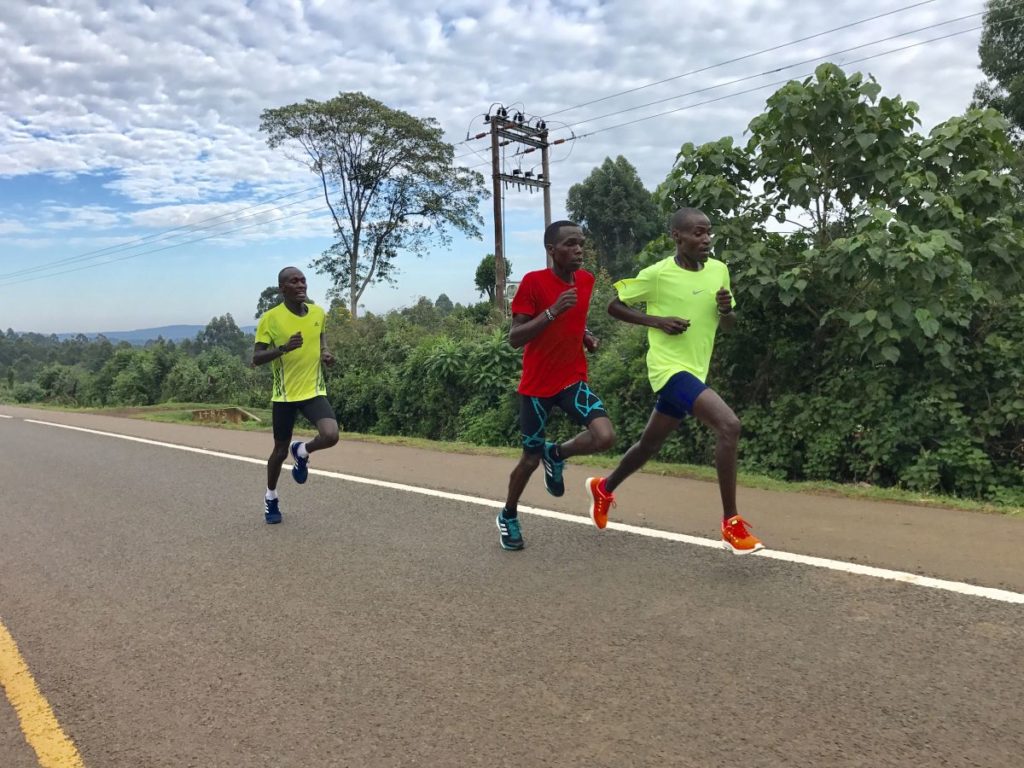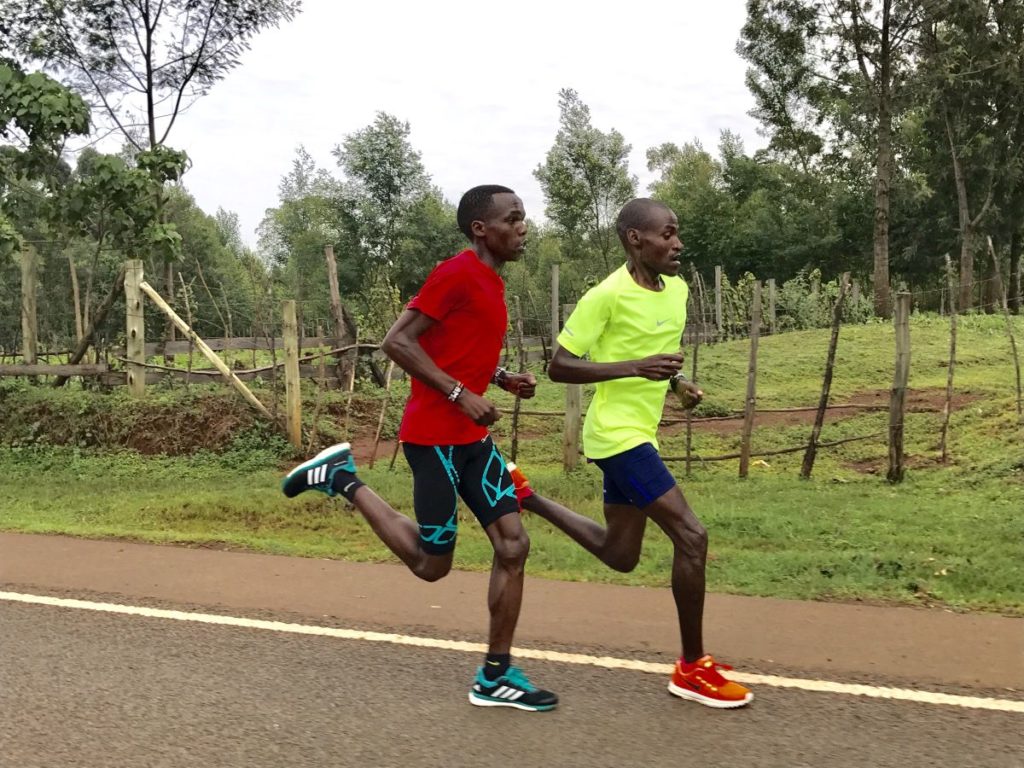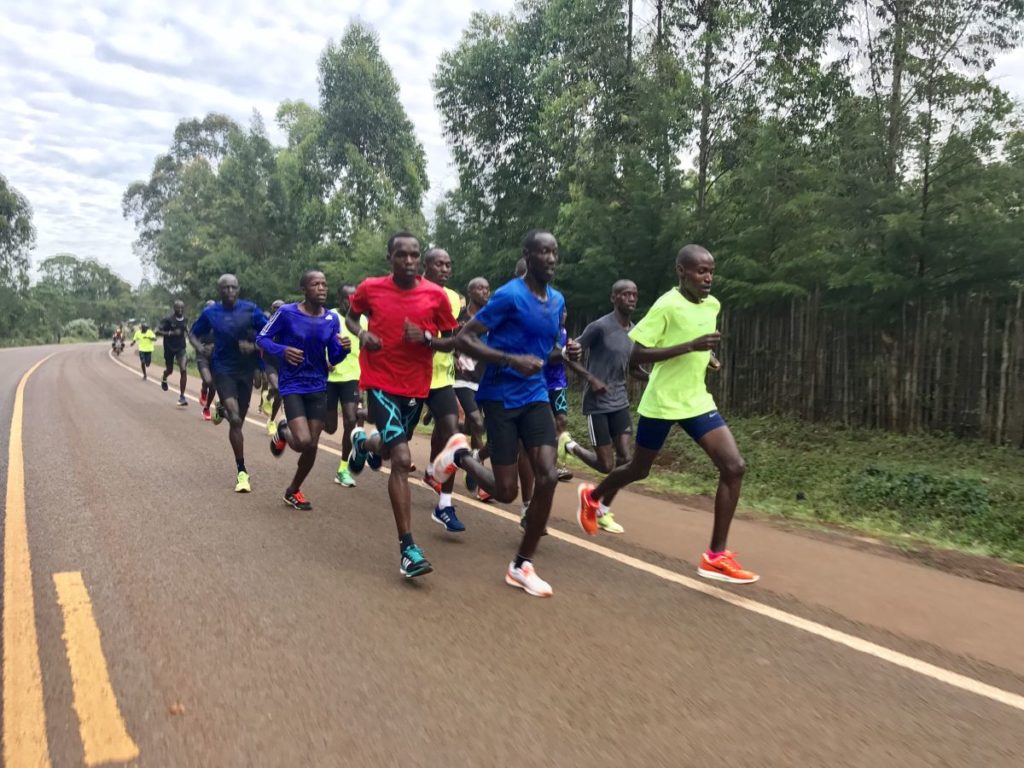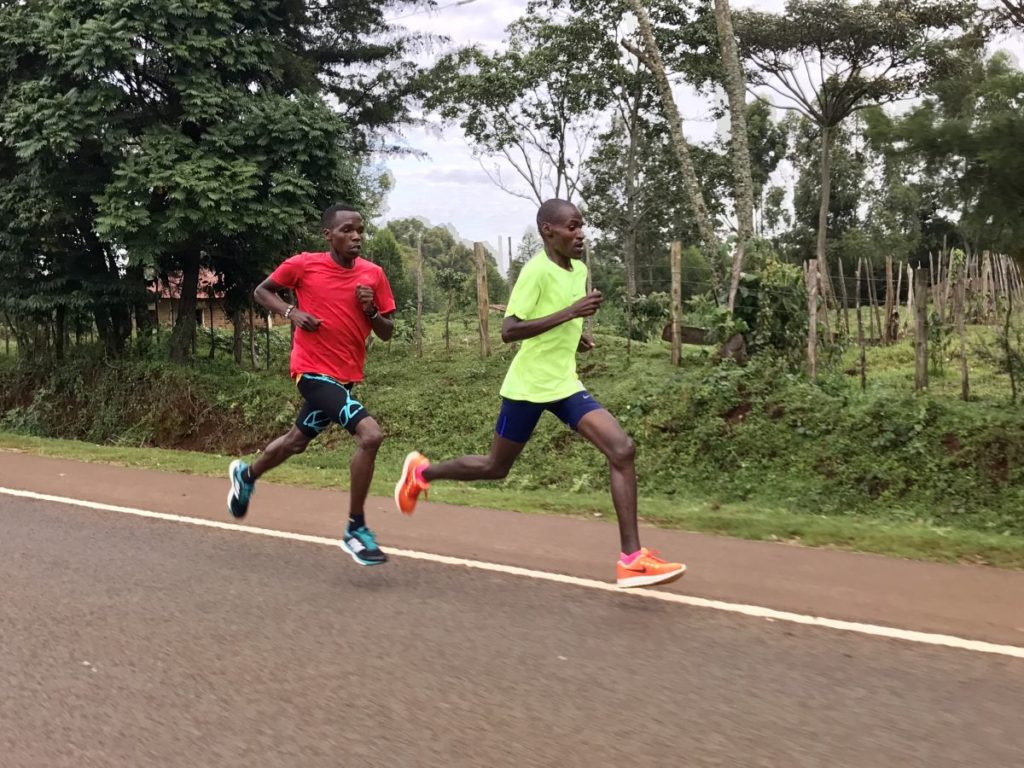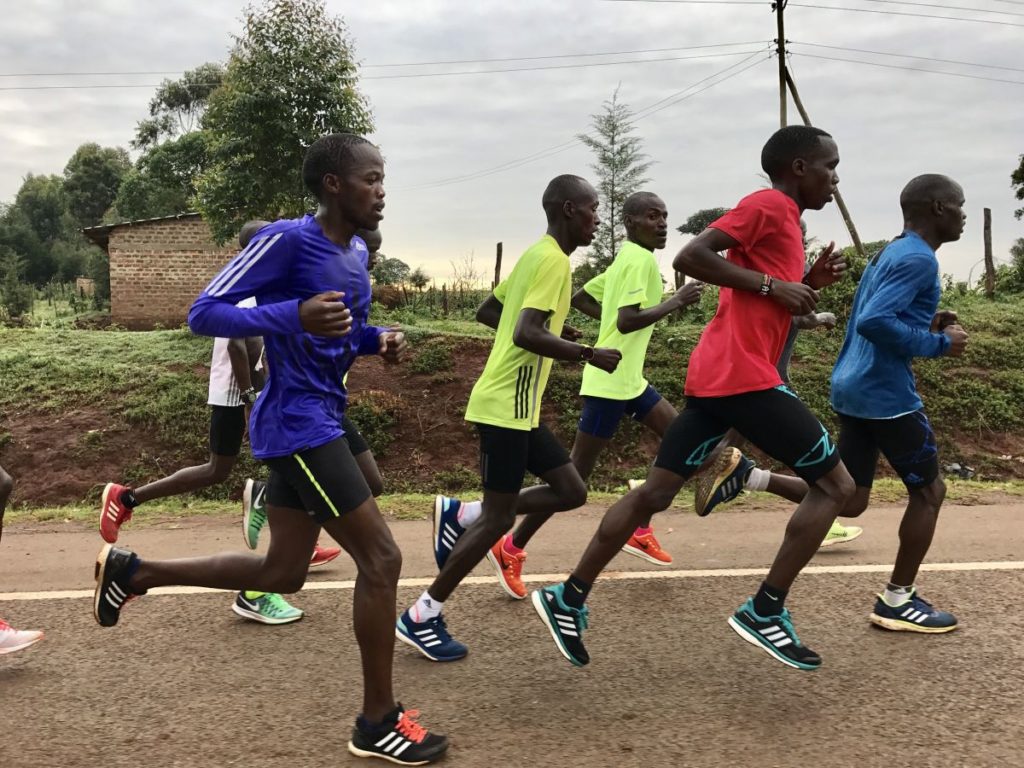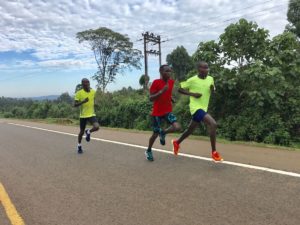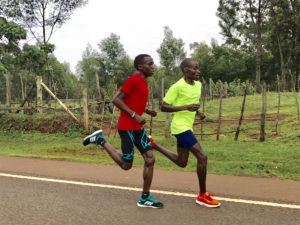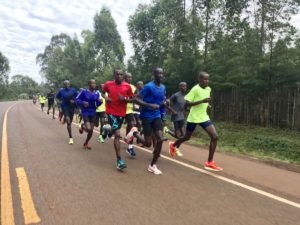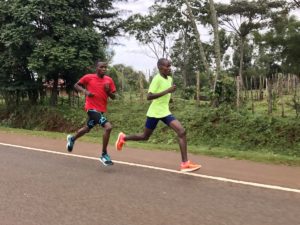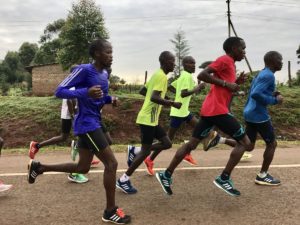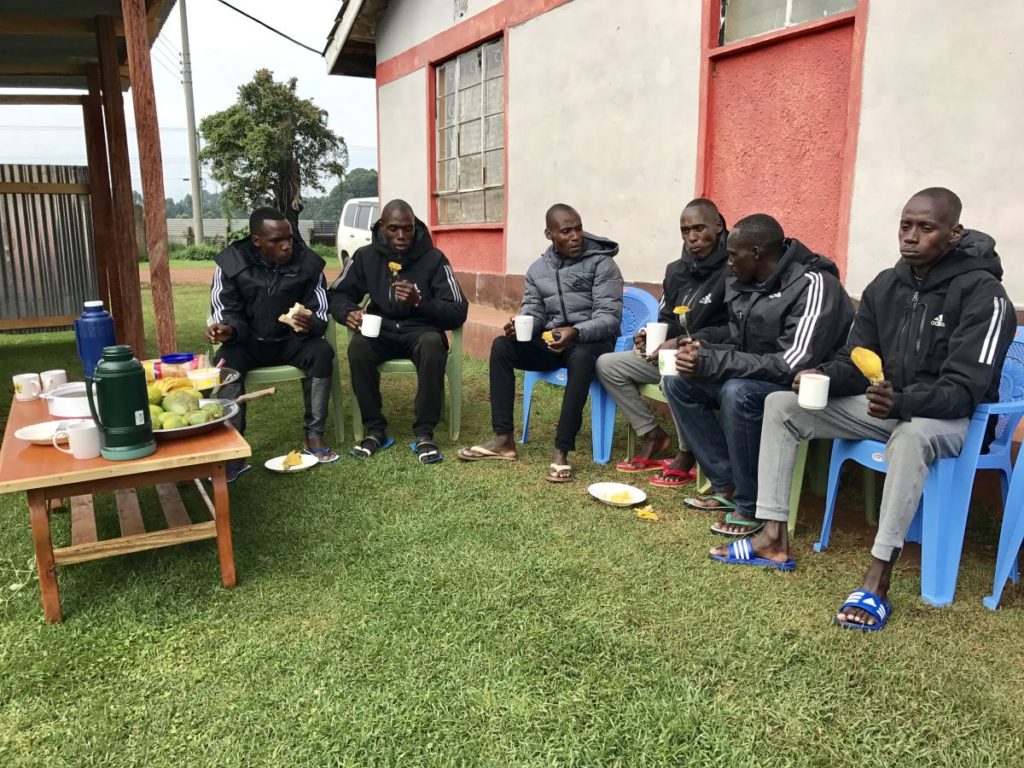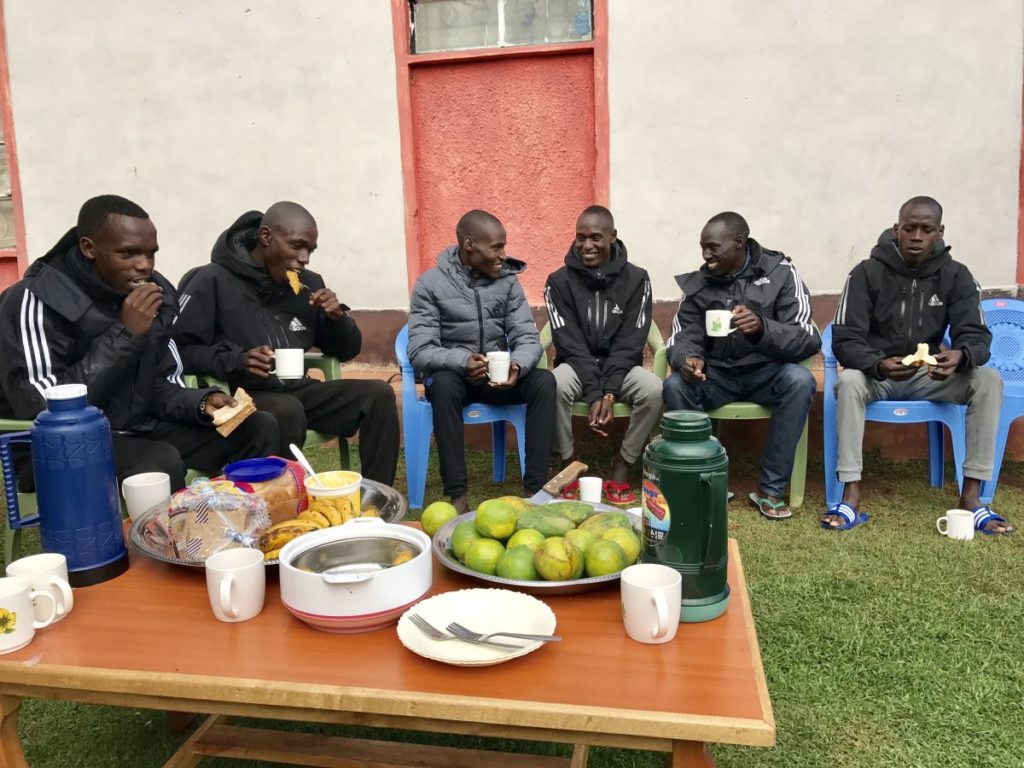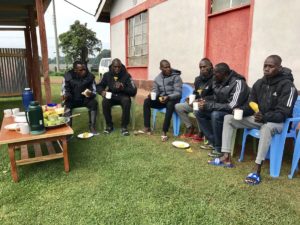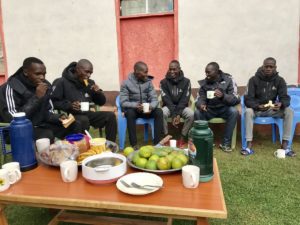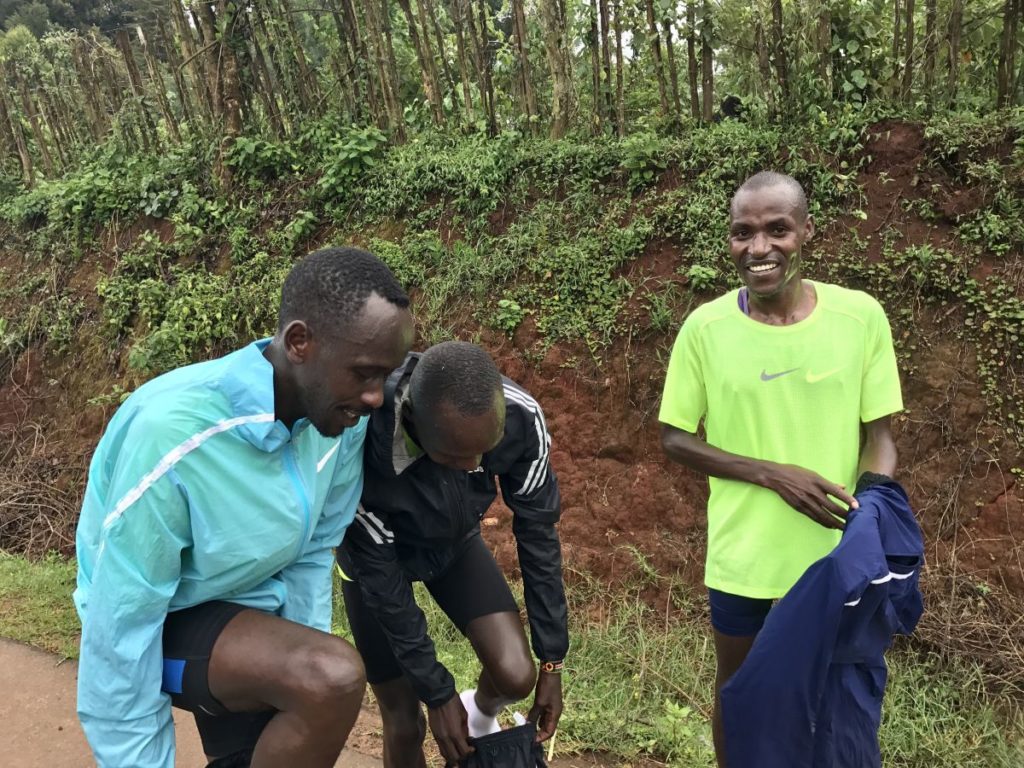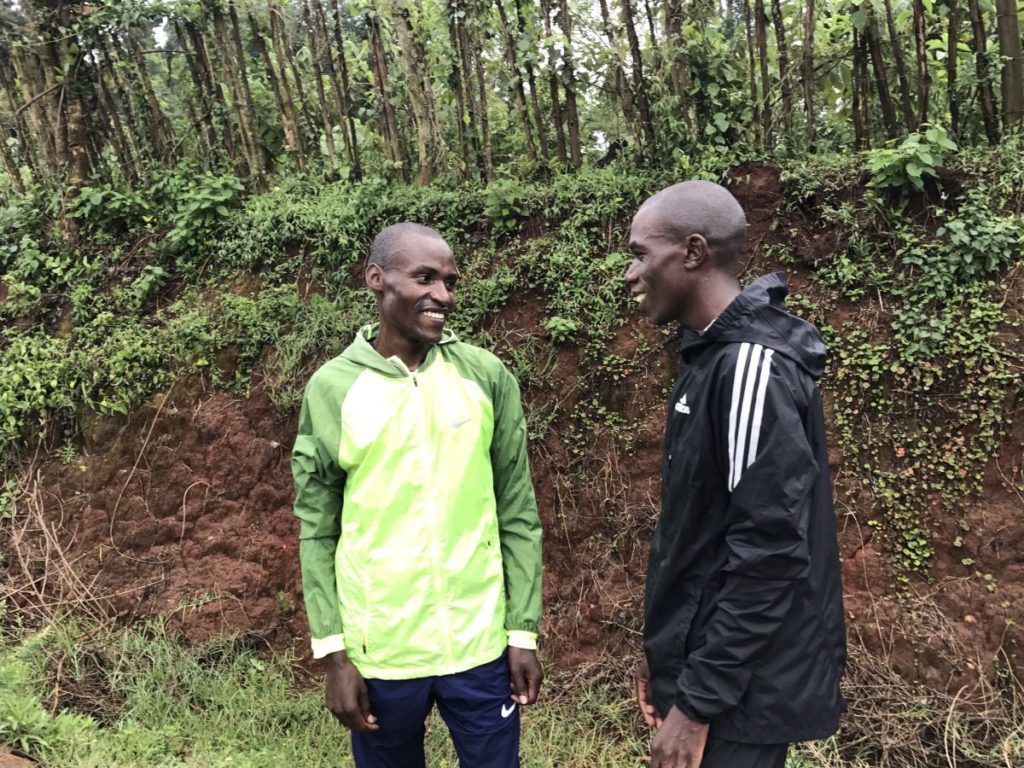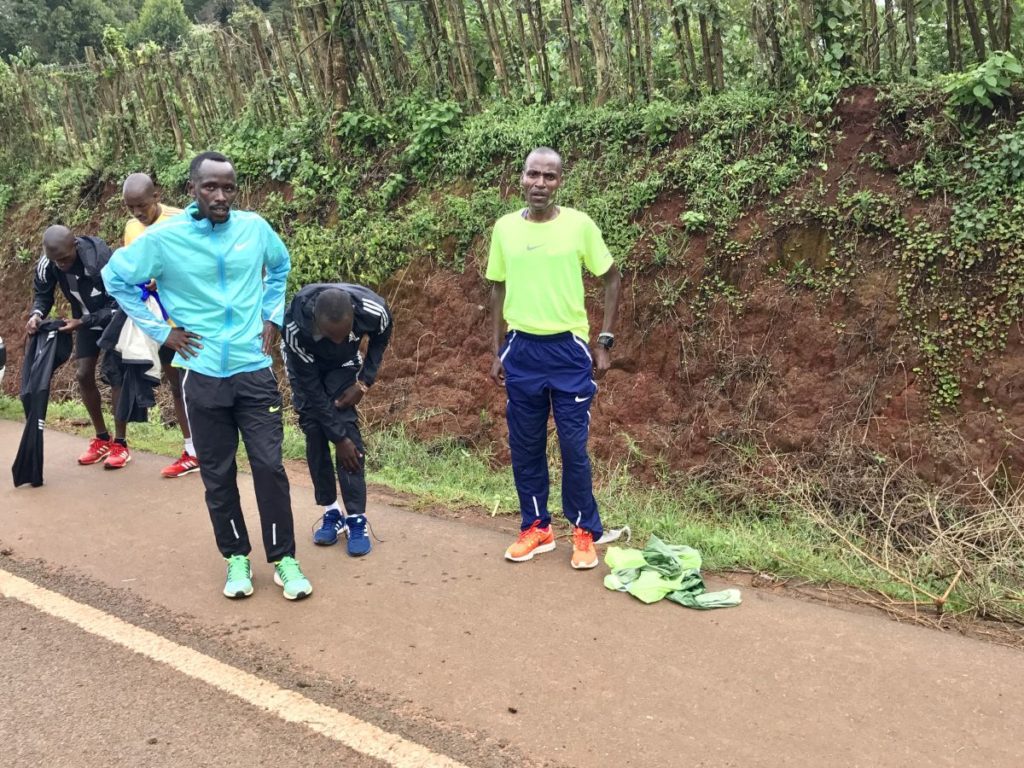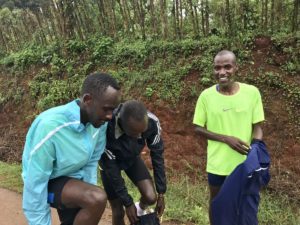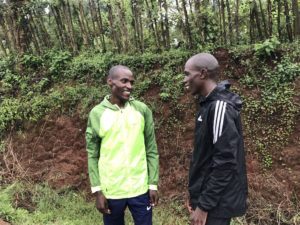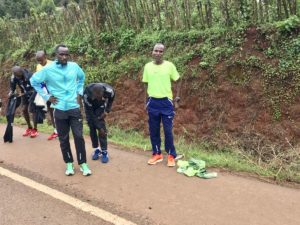By Paul Gains
The town of Kapsabet sits high up in the Great Rift Valley, at 2,000m above sea level. There, Dickson Chumba has been training under the watchful eye of Italian coach Claudio Berardelli for the 2017 Scotiabank Toronto Waterfront Marathon. Amongst the group are several athletes who have run 2:06 or faster. One of the up and comers is Chumba’s younger brother, Benson Kipruto, 26, who ran 2:09:51 in Prague this year.
“Kapsabet is a very hilly area and we like training along the tea plantation there which is a very good place for our long runs,” Chumba says.
The camp is not too far from Chumba’s home village where his family is located. Though he prefers to remain in the camp when he is focusing on a marathon, he does enjoy going home occasionally to visit his family and to check on the businesses he has established with race earnings, including the massive prize purses he obtained for winning both the Chicago and Tokyo marathons. Those visits are only undertaken when Berardelli hasn’t scheduled a group workout. Otherwise, he is totally committed to the training camp.
But training in the area comes with its challenges beyond just the thin air at altitude. “The rain in Kenya is a factor that we have to consider because it can rain quite a lot [especially from April to June] and the roads become very muddy,” Chumba says from his training camp. “But our coach has made us use tarmac roads when it is not possible to use the dirt roads. The tea plantation is also a good solution during the rainy season. Roads there are the best because the tea factories are maintaining them in perfect conditions.”
“I like building because, for someone like me who comes from a poor family, it allows me to visualize what I have managed to achieve in all the years of hard training. It gives me satisfaction.”
Although Chumba spends big blocks of time training with the camp, he is married and has three children. “I have two boys of seven and five years and a girl who is one year old,” he says. “My wife stays at home with them and she takes care of the land we have around our home.” The Chumbas grow maize and vegetables. “When I am in off season, I like staying with my kids,” he says. “I don’t have any particular hobby but when I am not fully in training I take care of my other business. I have built some rental houses and I hope to build some more. I like building because, for someone like me who comes from a poor family, it allows me to visualize what I have managed to achieve in all the years of hard training. It gives me satisfaction.”
Unlike many Western athletes, who will race at some point to test their fitness in the marathon buildup, Chumba has no plans to leave Kenya before his trip to Toronto, which will be his first time in Canada.
“During the preparation for a marathon we always have two or three key workouts which give us some feedback about our shape,” Chumba says. “It can be a fast, long run around 35 kilometres or a session of 22-24K, very close to marathon pace with the last portion faster than that. But, honestly, over the years I have gained experience about my body and I can feel day-by-day if I am doing the right things or not.”
Chumba hopes to break the Canadian all-comers marathon record in Toronto on Oct. 22. To do so, he’ll have to run under 2:06:54. As one of the fastest marathoners in history, Chumba has run faster four times in his eight significant marathon performances in his career thus far. His PB is a scorching 2:04:32, which currently ranks him as the 16th fastest marathoner in history. Chumba will be motivated, with Scotiabank offering a $50,000 bonus for breaking the Canadian soil record.
